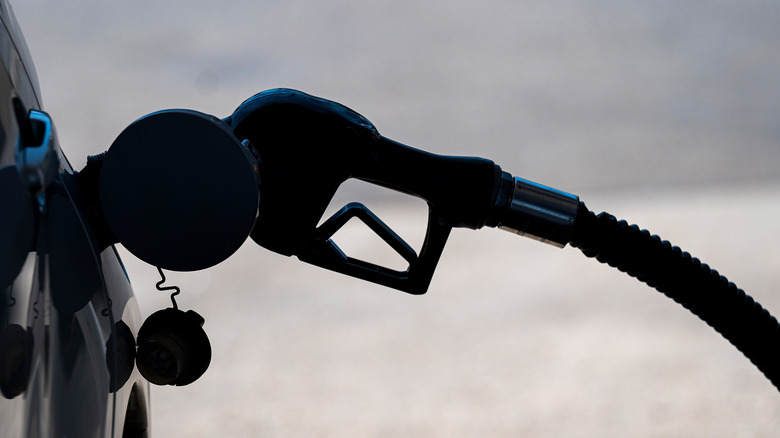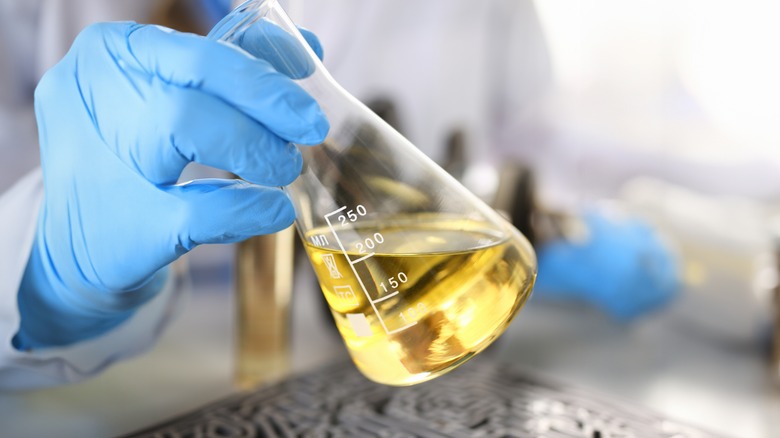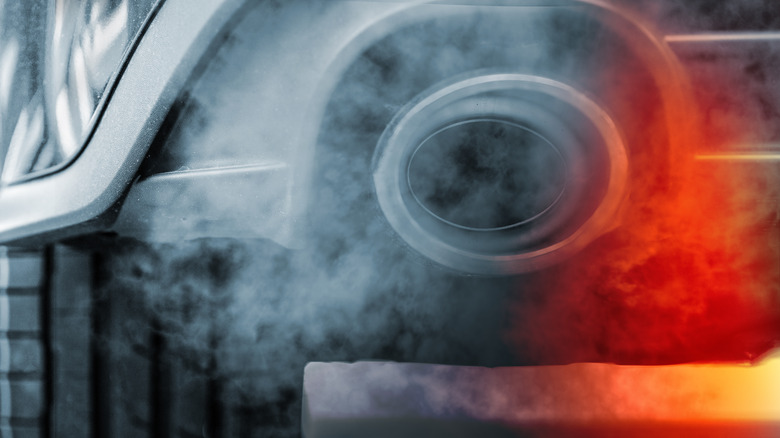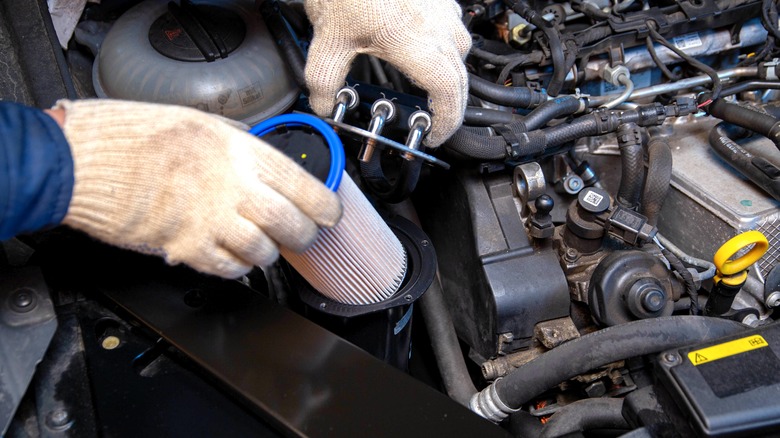How To Identify And Avoid Bad Diesel Fuel
Diesel engines have some major advantages, like increased durability, greater fuel efficiency, and more torque than a gasoline equivalent. Like gasoline and kerosene, the fuel itself is refined from crude oil in most cases. However, there are some downsides, including the fact that fuel contamination can occur.
In a best-case scenario, bad diesel will just make your vehicle run a bit less efficiently. However, many common contaminants will lead to corrosion in your fuel system, damaged pumps, damaged engines, and clogged filters. So it's important to know how to spot fuel contamination, and deal with it before it ends up damaging your vehicle.
In terms of root causes, water in the tank is one of the most common issues. This can happen because of a missing fuel cap, a leak, or even condensation inside the fuel tank. The latter can happen when a previously warm tank cools, and draws air in from the outside as a result. Humid air hitting the sides of a cold fuel tank can lead to condensation, and in turn can cause contamination.
In addition to the years I've spent as an auto writer, I've owned, worked around, and driven several diesel-powered vehicles. Here's a list of some of the reasons why your diesel fuel can go bad, some signs that may indicate you have an issue with your diesel fuel, and information on what you can do should you end up with a tank full of tainted diesel.
How does diesel fuel go bad?
Diesel can go bad in a few ways, and a couple of those ways are water-related. First, as with a gasoline car, water in the fuel system isn't a good thing. If you somehow get water in your fuel tank, then it may sit suspended in the diesel for a while. It will eventually sink and settle as a layer on the bottom — particularly if there is a lot of water in the tank. This is because water is denser than diesel, which makes the diesel essentially float on top of the water. As with oil and water in general, the two don't mix. If any of that water makes it through the fuel system and into the engine, it's likely to cause some major problems. Water doesn't burn, and it doesn't compress either. So if there's enough water in one or more of your vehicle's cylinders, then you'll probably bend a piston rod or two at the very least.
Water can also harbor microbes, and may contaminate your fuel with something known as "diesel algae." The slimy, living, substance has a good chance of clogging up your fuel system relatively quickly. It's also something that has to be thoroughly eradicated if you notice its presence. Otherwise, it will just keep building up again.
Fuel dilution is another potential issue. That's when the diesel fuel is mixed with gasoline or another solvent. A diesel engine is meant to run on diesel, and not really anything else, so a bad combination here could lead to engine damage. Finally, improper storage may lead to fuel degradation. Temperatures are the biggest concern here, as warmer locations tend to break down fuel a lot quicker than cool ones.
How do you spot bad diesel fuel
If a sample of fuel, or a glance into the tank, shows floating contaminants, then that is a good indication that the diesel fuel you're using is tainted in some way. Discolored fuel is also a bad sign. If it's darker than it should be, that could be a sign contaminants are present. The presence of water will also change the appearance of the diesel, with suspended or "bound" water giving the fuel a cloudy appearance and emulsified water leaving it with a milky look. Sludge may also be present in the fuel filter if you have a bad batch of diesel in your vehicle.
If the fuel is contaminated, it may pick up a foul odor. Not that diesel has a particularly pleasant smell to begin with, but if something seems off, you should definitely investigate further.
Other symptoms include excessive or white exhaust smoke, damage to components like injectors, a loss of power or engine RPM, rough starting, poor idling, and a lag in acceleration when you get your foot down. Some of these symptoms are shared with various other vehicle issues, but if you spot one, taking a quick glance at the fuel system may save you thousands in repair bills.
How do you fix a vehicle with bad diesel fuel in it
If your vehicle has had bad diesel fuel in it, then don't worry too much. It can be fixed. The fix itself isn't complex but can be a bit of a chore to perform. As you may have guessed, the first step involves draining all of the bad diesel fuel from the fuel tank. How complex this part is depends on your vehicle. Some older vehicles will have a drainage plug, but in some cases this may involve removing the fuel tank entirely. You can use a siphon to take most of the fuel from the tank, but you'll want to be sure it's completely empty before proceeding.
Once your tank is empty, you'll need to swap out the fuel filter. Unfortunately, the old one will almost certainly be contaminated. Once that's done, you can fill up the tank with fresh diesel. Finally, you'll need to get your hands on a diesel additive called "Biocide" and add that to the first batch of fuel you put in the tank. The additive should clean up any remaining contamination in the system.



